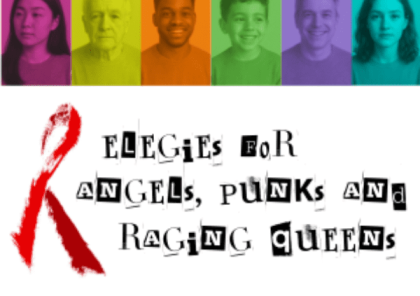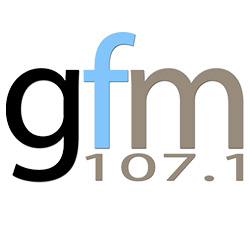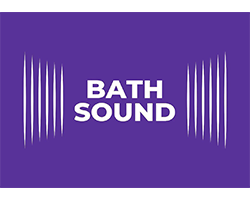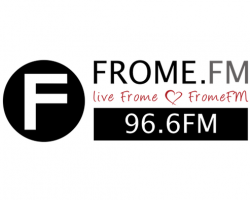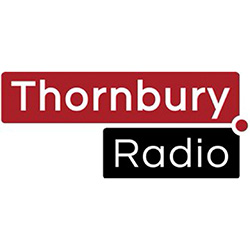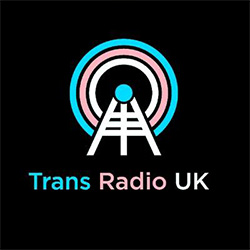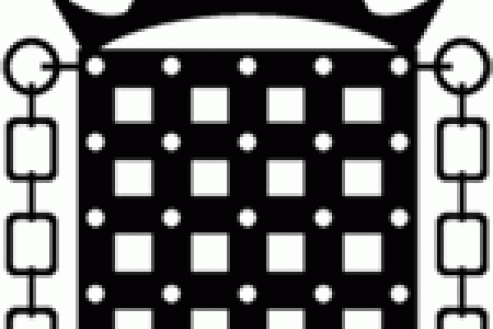
18/07/2024
ON Thursday 18th July, "ShoutOut" broadcast a discussion on the new Parliament and government elected at the General Election two weeks previously. It was a fascinating discussion. Here is the briefing document our panel had prepared for them, to which they could refer during the discussion.
Well, the General Election of 2024 was a night full of drama and even some surprises before the hard work of government now begins. Tonight, we are going to have a discussion about LGBTQIA+ people and the election, and the wishes of our communities going forward.
It is probably fair to say that many LGBTQIA+ people were in agreement with a young many interviewed on the Local Bristol TV Channel, who said "I'm just glad that lot are gone". However, we also need to recognise that there are many LGBTQIA Conservatives who have made contributions to our political life. Indeed, popular lesbian Scottish Conservative and former leader of that party in the Holyrood Parliament, Baroness Ruth Davidson provided her expert eye over much of the Election Night coverage on the Sky News Channel and was still looking good at 7am on Friday morning, when many of the rest of us were somewhat bedraggled. Many LGBTQIA+ people within the Conservative Party also opposed the outgoing government's weaponisation of transgender issues, and the attacks made on transgender women by certain gutter press titles such as the Daily Mail and the Daily Express.
Even so, LGBTQIA+ people tend not to vote in terribly large numbers for the Conservative Party. Subcultural groups within our rainbow community, such as activists, bears, skinheads, punks, radical lesbians, trans anarchists and so on, all have homes elsewhere on the political spectrum and broadly on the broad centre or left.
The anti-fascist organisation Hope Not Hate said that there were some positives that progressive groups should welcome from the election. They said:
George Galloway Loses: The leader of the fake leftist Workers Party, and prolific homophobe, transphobe and racist has lost his seat in Rochdale. Regular leafleting sessions here helped spread the news that George Galloway isn’t the anti-elite hero that some people make him out to be. This analysis was shared by the left wing organisation the Communist Party of Great Britain, who also pointed out that Mr Galloway is in bed with every dictatorship going, and has been an apologist for the Iranian Clerical fascist regime for decades. On the BBC 1 General Election night coverage, former Labour leader Lord Neil Kinnock said of Galloway's defeat " "I'm delighted! He is repulsive! Galloway is repulsive, he always has been... I couldn't find a good reason to chuck him out, which used to infuriate me. But I've known him since 1983 and he is repellent... he is such a chancer, he is so superficial." The Welsh Daily newspaper the Western Mail added that Galloway " has also been a presenter on Russian state media outlet RT and Iranian state media outlet Press TV in recent years. " On these highly suspect propaganda channels, Mr Galloway railed against transgender rights.
Reform UK Gains Limited: Despite their expectation, Reform UK won 4 seats, far fewer than they had been predicted in the Exit poll and would have wanted. However, Hope Not Hate say that Despite our efforts, Reform UK secured seats in Great Yarmouth and Boston and Skegness. The late announcement of Nigel Farage’s candidacy limited our response. Additionally, Reform came second in 98 seats, signaling their growing influence despite fewer wins than expected.
Radical Right Conservative Losses: Figures on the radical right like Steve Baker, Miriam Cates and Mark Jenkinson all lost their seats. These MPs were spreading climate denialism, transphobia and hate. However, the Hope Not Hate group also notes that . Kemi Badenoch, Suella Braverman and Priti Patel are likely to be in the running for the Conservative leadership, and will try to shape the party in their image.
In addition, we can look back to the 1970s when the National Front and British Movement did well under Labour governments and again in the period around 2000, when the now imploded British National Party enjoyed a brief flutter of success under Tony Blair's administration. Hope Not Hate say "A huge majority for the Labour Party is likely to embolden and encourage the far right. Historically, the far right is more active when centrist and left wing Governments are in power. But we are ready for this surge."
Let us not forget that MPs both Conservative and Labour have been murdered in the last decade by people espousing far right and fundamentalist ideologies. Whilst apparently the mirror image of each other, these ideologies in fact unite in their opposition to progressive values, secularism, science, and equality for all.
Pink News, the top LGBTQIA newswire in the UK, noted another interesting tidbit from the election. An anti-transgender extremist, known as Kellie-Jay Keen Minshull, stood against the Green Party's Carla Denyer, after Ms Denyer affirmed that there was no contradiction between trans rights and women's rights. Ms Keen Minshull, who appeared in Sydney alongside Neo-Nazis last year, not only failed to retain her deposit, but polled an astonishingly poor onehundred and ninety six votes. Pink News described this performance as "dismal, rather like the fascistic ideology to which she subscribes". In addition, the anti-trans orientated political party "Party for Women" which is in no way related to the more progressive and trans inclusive Women's Equality Party, failed to win even as many votes as Satirical candidates such as the well known Official Monster Raving Loony Party, which was set up by lovable prankster and rock star Screaming Lord Sutch. Anti-trans candidates also performed worse than joke candidates such as Count Binface and baked bean enthusiast Captain Beany. No further comment necessary!
Incidentally, veteran environmental group Greenpeace said that this election now means that change on eco issues, something that is close to many, many LGBTQIA+ people's hearts, is firmly on the agenda. They said "we now have a Government that has promised to stop new oil and gas licences, and has a plan for rolling out renewable energy and green homes. This is a good start, but we’ll need to keep pushing them for the future we want and deserve. We’ll also need to keep standing together to demand peace, justice and equality - here and across the world."
Of the world media, some enlightenment comes from the BBC Monitoring Service. Based in Surrey, this is an international post which monitors shortwave, satellite and domestic transmissions from television and radio networks from around the world to gain a global perspective on affairs. Not only is this useful to British journalists, but many UK governments have turned to the Monitoring Service to better understand the global narrative. For Germany's Frankfurter Allgemeine Zeitung, external, the results mean "the British [have] had a burden lifted from their shoulders", but any renewed stability in the UK is seen as fragile. Voters "were primarily concerned with getting rid of the Conservatives," the paper says, adding that "Labour has a stable majority, but also problems within the party". German business daily Handelsblatt, external says the British election result "opens up the opportunity to correct Brexit". "Now is the time to correct one of the biggest mistakes in British politics. A security pact with the EU can only be the beginning," the paper said. According to Le Monde, the UK’s return to the centre-left is "striking, especially seen from France, where the far right has the wind in its sails on the eve of the second round of the legislative elections". The New York Times, external casts Labour's victory as "a seismic moment in the UK’s politics, returning to power a party that just five years ago suffered its most crushing defeat since the 1930s". ABC News, a centrist television network in the United States said that Rishi Sunak’s campaign to remain Britain’s prime minister showed a lack of political touch. "Predecessors such as Tony Blair and Boris Johnson were more politically astute and able to connect with voters." As for Mr Sunak, he defied political advice by calling the election in May — "with Conservative support dwindling steadily amid an economic slump, ethics scandals and a revolving door of leaders over the last two years," the broadcaster said.Meanwhile, a headline in the Wall Street Journal, external read: "The UK elects a no-drama prime minister after years of post-Brexit chaos." "Eight years after the UK voted to leave the European Union and entered an era of political and economic turmoil, voters have asked Keir Starmer to steady the entire country with his brand of dull competence," the paper said. “With six prime ministers in eight years, can Starmer clean up the UK’s mess?, external” asked Chinese communist broadcaster CCTV.
In Wales, a resilient country which was annexed by England in 1282 CE but which has retained its own language, cultural identity and media, the national Welsh language radio networks BBC Radio Cymru and BBC Radio Cymru-Dau have noted that there are, just as in 1997, no Conservative MPs in Wales, although they still have seats at the Cardiff Bay Assembly. Plaid Llafur, which is the Labour Party in Wales, retains a firm grip on the country, with an astonishing twenty seven seats. The left leaning Welsh Nationalists, Plaid Cymru, returned four MPs, a number that has been pretty static in its Welsh speaking heartlands for decades. The Liberal Democrats hold the remaining seat.
The Welsh language television station Sianel Pedwar Cymru (S4C) said that "A number of protesters were hauled out of a Reform UK press conference in London on Friday as the party celebrated winning five seats in the General Election. Chairman Nigel Farage said he intended to "democratise the " party" and make it "more professional."
He added that he would remove "bad apples" within the party after a number of complaints that some Reform members had made racist and homophobic comments during the campaign. The party won their fifth seat on Friday afternoon after a recount in the Basildon south constituency. their candidate James McMurdoch won with a majority of just 98 votes for the Labour Party. Mr Farage was elected as a Member of Parliament in Clacton, at his eighth attempt.
Nigel Farage appeared to address minority groups such as LGBTQIA+ people and people of colour when he said he wanted to "professionalise" the Reform Party and of those recently dismissed for racism and homophobia he said “those few bad apples that have crept [in] … we will never have any of their type back in our organisation, you have my 100% promise on that.” Mr Farage said that he was after votes not just of the Conservative Party, which although battered and bruised will still make up the official opposition. The Guardian noted that Mr Farage expressed a wish to oppose Labour's centre left policies across the country.
The far right of the Conservative Party seems to have different approaches to Reform. Transphobic motormouth Kemi Badenoch, who may be in the running for Tory leader, has dismissed Nigel Farage as a showman. Critics of right wing politics will welcome this approach from Badenoch, as it is likely to keep the centre right organisations splintered and infighting into the future. In addition, Reform UK is a personal project, some would say a vanity project, of a few wealthy millionaires. It is not likely in the short term that they will want to cede control to the ancient and revered Conservative Party, with its long established mechanisms.
One strange result of the election is that a number of parties, of both left (such as the Greens and the left of the Liberal Democrats, plus smaller parties like the Trade Union and Socialist Coalition) and the right (such as Reform and the gaggle of far right extremist parties) are pushing for Proportional Representation. But with its healthy majority, Labour is unlikely to want to entertain anything that would lead to future Parliaments with no overall control and the development of coalition politics as they have in many continental countries.
The BBC's Radio Scotland network reports that the Scottish National Party, which once held a huge per centage of Scotland's Westminster seats. A meltdown in their vote with swings of over twenty per cent to Labour has seen them lose thirty eight seats. Trans gender campaigners will welcome the news that SNP transphobic lesbian Joanna Cherry was ousted by Labour in Edinburgh South West. Alex Slamon's Alba Party polled a miserly eleven thousand votes across the whole of Scotland and is largely written off as an electoral force. This will be welcomed by those who questioned its lukewarm policies on gay and trans rights. Lesbian and LGBTQIA+ activist Scottish Nationalist MP Mhairi Black stood down as an MP at this election, a loss for progressive politics as she was extremely active across a number of issues. Kate Forbes, the SNP's controversial religious fundamentalist, sits in the Scottish Holyrood Parliament and was not affected by the Westminster General Election.
One interesting anomaly at this election were the four independent candidates elected in otherwise safe Labour seats. These independents largely drew support from the Muslim community, reports the Guardian but also picked up votes from many disaffected Labour voters, frustrated at the party's international political positions. Taj Ali, the co-editor of left socialist magazine Tribune , pointed out that pro-Gaza independents now account for four seats in parliament – the same as Nigel Farage’s Reform UK and the Green party. The Guardian says "It would be wrong to suggest Gaza is the concern of the Muslim community alone. It is not. And no community is a monolith. Voters of all demographics have relayed to us their concerns about healthcare, housing and the cost of living crisis in recent weeks." How the four newcomers will vote on any LGBTQIA+ issues may be interesting as they show up faultlines within the Muslim community. But we hope that the influence of the left wing Gaza solidarity movement will push them towards liberal positions.
Positions of various parties on Trans+ Rights
Prime Minister Rishi Sunak has suggested voters face a "crystal-clear choice" at this election about the protection of single-sex spaces.
The Conservatives say that - if re-elected - they would have "protected female-only spaces and competitiveness in sport", by rewriting the Equality Act to make clear that sex as a protected characteristic means biological sex.
Sir Keir Starmer defended his position on single-sex spaces in a television debate.
"It's very important that we protect female-only spaces," he said, adding that he treats transgender people "as I treat all human beings - with dignity and respect".
He referred to guidance around the existing Equality Act, which says that a trans person with a Gender Recognition Certificate could be prevented from using a single-sex service in some circumstances.It is not the first time he has been challenged about his messaging around women and transgender people. Sir Kier also said that the current weaponisation by right wingers of transgender rights was "toxic".
The Lib Dems would seek to completely overhaul the gender recognition process, removing the requirement for a medical diagnosis if a person wanted to change the sex listed on their birth certificate. Like Labour, the party promises to ban conversion therapy outright, while non-binary identities - those who do not consider themselves to have a solely male or female identity -would be recognised in law.
John Swinney, who took over as SNP leader in May, has said he will "wait and see" after the general election about pursuing changes to gender recognition rules. The party had previously tried to enact a controversial bill that would allow transgender people to change their legal sex through self-identification - so without the need for a relevant medical diagnosis.
It was blocked by the UK government last year, on the grounds that it would interfere with equality law in the rest of the UK.
In its list of pledges, Reform UK says “divisive, ‘woke’ ideology has captured our public institutions”. The party says “transgender indoctrination is causing irreversible harm to children”, and plans to ban what it describes as “transgender ideology” in schools in England. In practice, this means “no gender questioning, social transitioning or pronoun swapping”. When leader Nigel Farage was recently asked on BBC 5Live how he would interact with transgender people as the opposition party, he said that “while we should respect the rights of transgender people…we equally must respect the rights of women too, and women-only spaces”.
The Green Party supports the idea of trans and non-binary people to be legally recognised in their chosen gender through self-identification.
It also supports a change in law so an ‘X’ could be added as a gender marker in the passports of non-binary and intersex people, if they wanted to use it.
Like the Lib Dems and others, Plaid Cymru would seek to introduce a policy of self-identification if someone wanted to change their legally recognised gender, without the need for a medical diagnosis.
Current State of the Parties in the Current Parliament
Labour - 411 seats
Conservative - 121 seats
Liberal Democrat - 72 seats
Scottish Nationalist - 9 seats
Sinn Fein - 7 seats
Independent MPs - 6 seats
Reform UK - 5 seats
Democratic Unionists - 5 seats
Green Party - 4 seats
Plaid Cymru - 4 seats
Social Democratic and Labour Party Northern Ireland - 2 seats
Alliance Party of Northern Ireland - 1 seat
Ulster Unionist Party - 1 seat
Traditional Unionist Voice - 1 seat
The performance of far right wing and socially conservative candidates was broadly welcomed by many LGBTQIA activists. Groups such as the Christian People's Alliance, Scottish Family Party, English Democrats, British Democratic Party and the Christian Party polled no more than a combined few thousand votes. However, there were some other parties that do support equality and human rights such as the Trade Unionist and Socialist Coalition, the Women's Equality Party and the Peace Party which also polled very low numbers of votes.
Some questions for our panel this evening:
- Are we confident that the new government and this new Parliament will fulfil its obligations to LGBTQIA+ people?
- Many people are making much of the fact that the new cabinet is very ordinary compared with its predecessor. Many of the members have been state school educated for example? Do you share in this optimism for a more egalitarian approach?
- Sir Kier Starmer has met with controversial figures such as Joanne Rowling, whilst Wes Streeting, actually a gay man, appears to have made overtures to anti-trans narratives. What do we make of this?
- Can the Labour Party help end the divisive right wing culture war and toxic discourse that has so poisoned political debate - MPs on average receive three thousand abusive emails every day (Source: The Guardian and The Daily Mirror newspapers).
- Is British Democracy fit for purpose? Would a more conciliatory, round Parliament like those in other European countries be more beneficial, with a wide range of parties acting in changing coalitions to govern? Or does first past the post help keep the fringe elements like George Galloway, Islamic extremists, Christian fundamentalists and full time hate groups out of Parliament?
-----------



